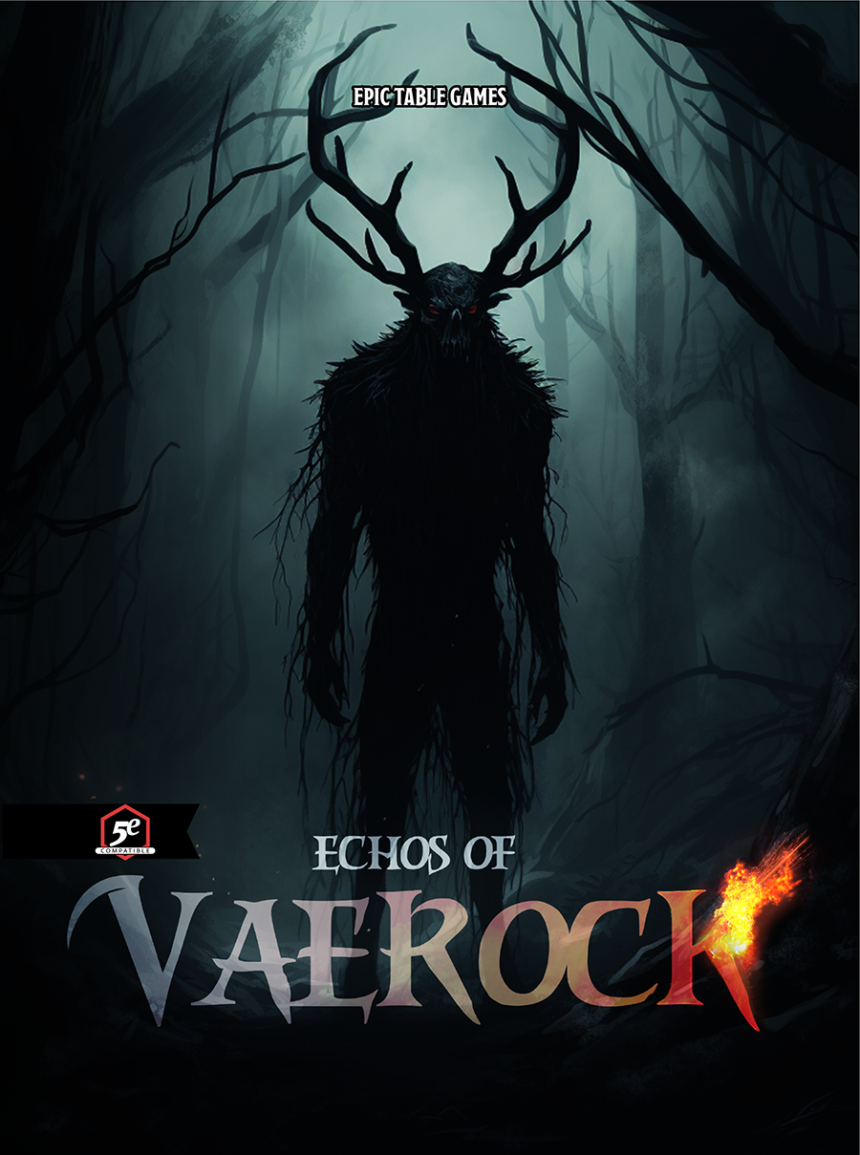Hey there, everyone, and welcome back to your seat at the Epic Table! Please excuse some holiday-related disruptions to the posting schedule as we get back on track for the end of the year.
In this post, I’ll be discussing seven things to watch out for in ads by GMs looking for RPG players. Generally speaking, these are things that cause me to automatically pass on a game listing no matter how good it seems otherwise. This is true whether the game is online or offline, and is doubly the case if the game is paid. (I don’t play paid games, but if I did I certainly wouldn’t pay to play in any of these scenarios.)
I want to stress, however, that not all of these are bad in every single game. There are many GMs who are able to handle these traits very well, and I’ve played in some very fun games that would have qualified for this list. The difference, though, is that I wouldn’t want to play in a game with any of these traits if it were being run by a GM that I didn’t know. Since that’s almost always the case when you’re looking at ads for a game to join, I see these seven things as disqualifiers in that situation.
On to the list!
1. Solo Games
Solo games are RPGs where only two people are playing: the GM and one player. And they can be a lot of fun! In fact, out of every single item on this list I think this is the one that I’d be most willing to play with a GM that I really knew well.
But the simple fact is that a solo RPG campaign is a very intimate experience. There’s a lot more personal attention and back-and-forth when you and the GM can (and have to) focus on each other the entire time. Think about this: would you commit to hanging out with someone you didn’t know for four hours at a time? You may have just said “yes” because of online dating—and if you did, think about the level of vetting and commitment that goes into that. That’s a lot to ask for an RPG campaign.
2. Too Many Players
On the other hand, it’s also very common to see GMs advertise for games of seven or more players. In my experience, these are almost always unworkable.
As you might expect, the problems with a 7+ player game are the polar opposite of the problems with a solo game. In a game with seven players, seven different people are competing for time, attention, and focus. Even if a GM splits these all evenly, it means that any individual player is only getting the GM’s attention 14% of the time. That means that 86% of the GM’s time is spent elsewhere.
If that doesn’t sound like a lot, think about a game that has an initiative system similar to D&D’s with seven players. Counting the GM but ignoring reactions, you’d only be taking actions 12.5% of the time. The other 87.5%, you’d be watching other people go. If your combat took two hours—which assumes five minutes per turn for each person, which is generous but not uncommon—you’d spend a grand total of fifteen minutes acting and an hour and forty-five minutes on everyone else. That’s how you get people pulling out phone games.
Heck, you could genuinely fit in an episode of a 30-minute show between each of your combat turns. That doesn’t sound like a great time unless you’re behind on binging Detroiters.
Managing too many players is almost impossible, even for a strong GM. This is a game I’d avoid even with a GM I knew. Oh… and “I expect some people to drop out” isn’t an excuse. Recruit better people.
3. No Scheduled Time
These are ads that say something like, “Schedule TBD; will discuss with group once players are recruited.” Out of all of these, it probably seems like the most innocuous on the face. What’s wrong with wanting a time that works for everyone?
Well, because it’s quite likely to not work for everyone.
As practically everyone knows, scheduling is the bugbear of the RPG world. (Aside from the actual bugbears, of course.) If you go about recruiting a group with no set scheduling time, you’ll very likely wind up with a group whose schedule doesn’t line up. So then you’ll wind up having to drop some of your recruits and recruit for people that match the schedules of your remaining group. Which you could have just done in the first place.
(The best of both worlds, by the way, is presenting a few times that work for you and having potential recruits indicate which times work for them. There are a number of good online scheduling apps to assist with this.)
4. Too Many Houserules
Okay before you flame my email, let me explain. I think houserules are fine. I think a bunch of houserules are fine. But if your houserules take up more than a page or at most two, you probably need to be playing a different system.
There are, and I cannot stress this enough, so many game systems out there. There are sci-fi games. There are Western games. There are sci-fi Western games. There’s a game about playing an AI possessing corpses. There’s a game about robbing a famous author of mediocre magical school stories to spite her stupid face. I assure you, there is a game system out there that better matches what you need than the Frankensteinian hodgepodge you’ve put together out of probably D&D, let’s be real here.
5. The Wrong System
Basically, this follows the same reasoning as “too many houserules.” If you’re running a sci-fi adventure campaign, you’re probably better off using a sci-fi adventure game system than probably D&D, let’s be real here. (And once again, I am begging you to play something besides D&D or Pathfinder.)
6. “Sandbox” Games
This is another one where I’ll definitely play in a game where I know the group, and of course there are certain games (Apocalypse World, e.g.) that are sandbox by nature. But for the games that feature a more prep-focused approach, most of the time I see “sandbox” it winds up meaning “I have some cool ideas for a setting and no idea what to do with them.”
Sandboxes are a lot of fun… with the right players. In order for a sandbox to work, you need players who are used to the player-driven approach seen in Apocalypse World or similar games. Unfortunately, the most popular systems today tend to engender a more reactionary approach by players. It’s really hard to accurately recruit that kind of player in a pick-up game, and that’s even if the GM knows how to run it right. For games that get set up through blind advertising? Stay away.
7. “Mature Themes”
I want to make something absolutely clear: I have seen games do amazing, amazing things with mature topics like trauma, loss, and found family. I have seen people brought unbelievably close together through the powerful experiences that RPGs can create. I am in no way denigrating mature themes in gaming.
Unfortunately, a lot of people seem to think that the definition of “mature themes” is “things in the D&D 3.5 Book of Vile Darkness.” These people are morons.
RPGs as a hobby have come a long way in the last few decades. Unfortunately, one of the spaces in which we still have a lot of room for growth is in terms of understanding and portraying mature topics. Even when the GM has a good understanding of what mature topics are, they should always be discussed with a group before being included in a game. As such, I can’t imagine going blind into a game marked “mature topics” with a GM that I don’t know can handle them.
Good Ad-vice (Please Laugh, Headings Are All I Have)
And that’s the list! Hopefully this helps you weed out some of the bad from the good next time you’re going though game advertisements. You may not agree with everything on the list, but hopefully it’s helped you to figure out what your own dealbreakers are. Just stick to them… and good luck finding your next game!
The contents of this post are © 2024 H. Tucker Cobey. All rights reserved.





